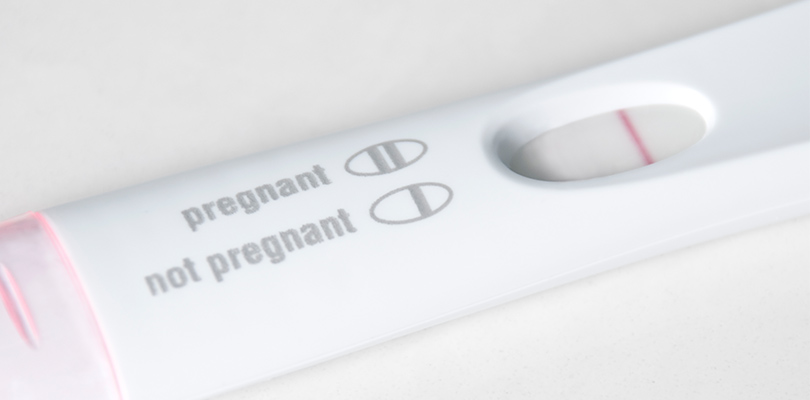Photo Credit: KatarzynaBialasiewicz / iStockphoto.com
How to Avoid Getting Sick
For most people, getting a cold or flu during the colder months is a yearly occurrence. Many viruses, including those responsible for causing the flu, love cold, dry weather and therefore multiply quickly during winter.
These viruses are also highly contagious, spreading from person to person via respiratory droplets. Contact can happen by direct bodily contact like kissing, or touching something that has been in contact with the virus, like shaking hands with someone and then touching your nose, eyes or mouth.
Preventing the Spread of Germs
Therefore, reducing the spread of germs is key to avoiding getting sick. Consider the following tips to prevent spreading viruses and other microbes.
Wash Your Hands
This is one of the best ways to stop the spread of many microbes you come across, not just the viruses that cause colds and flu; as many as 80% of infections spread by touch, according to the CDC.
Use soap and water and scrub thoroughly for at least 20 seconds. If water and soap are not available, use a hand sanitizer.
Certain things you touch carry more germs than others. A 2011 study featured in Life Science revealed the surfaces that have very high levels of contamination – enough to spread an illness. The number one spot is the gas pump handle, followed by mailbox handles, escalator rails, ATM buttons, parking meters and kiosks, crosswalk buttons and vending machine buttons. Other germ-ridden surfaces include cell phones and other electronic devices, public soap dispensers, airport bathrooms, tray counters, seat armrests and magazines.
Take extra care to wash your hands well after touching these things.
Disinfect
This doesn’t mean that you have to wipe down everything you touch, but try to reduce the presence of microbes in your environment. Germs can live on a surface for hours, so if someone in your household is sick or if you take a trip to a new place, consider disinfecting areas like door knobs, remote controls or tabletops. You may also want to use disposable items such as cups or paper towels.
Cover Your Nose and Mouth
When you cough or sneeze, cover your nose and mouth – not with your hands, as you may have heard, but with the crook of your elbow. You can also use a tissue. This way the germs will not get on your hands and spread further.
Boosting Your Immune System
Preventing the spread of the germs is a good start, but likely not enough to avoid a cold or flu. It is impossible to live in a completely sterile environment, as we are exposed each and every day to various microorganisms. The reason why we don’t get infections from all these germs is because our immune system fights them.
Whether it is physically or mentally, everyone wants to be healthy. Find inspiration in this list of things healthy people do every day.
If we look at infections from this perspective, an infection is not truly caused by a germ, the germ is just a trigger. It is rather a weakness of the immune system that allows that germ to multiply and infect the body. Therefore, the next important step to prevent colds and flu is to keep the immune system strong and healthy.
Eat Well
A healthy, clean diet is more important than you might think. Vitamins, minerals and antioxidants found in healthy food are essential for the health of your immune system. Adopt a healthy diet all year around and include plenty of fresh vegetables, fruits, whole grains, beans, fish and lean meats, dairy products like yogurt and kefir, nuts and seeds and healthy oils for cooking.
Some foods are better than others when it comes to colds and flu prevention. Here are a few of them:
- Fatty fish like salmon, tuna and mackerel, olive oil, and nuts and seeds contain high amounts of omega 3 fatty acids, which have strong anti-inflammatory qualities. These foods help prevent the chronic inflammation that can weaken the immune system, as well as reducing stress and anxiety, which can also predispose you to catching a cold.
- Sesame and pumpkin seeds, turkey, lentils and quinoa are great sources of zinc. Zinc is a mineral with antioxidant qualities and has been found beneficial for limiting the progression and duration of colds.
- Garlic can help fight colds, according to a 2001 study published in Advances in Therapy; people who took garlic supplements for 12 weeks during winter experienced fewer colds compared with the placebo group. The key ingredient of garlic is allicin, a strong antioxidant compound. You can choose to add more garlic to your diet, or take it in supplement form.
- Yogurt and kefir contain good bacteria that promote a healthy digestive system and a strong immune system. A 2011 review study found that people who consumed probiotics, whether from foods or in supplement form – had a lower risk of infections of the respiratory tract than the placebo group.
Take Vitamin D
Diet can‘t provide enough vitamin D, as this nutrient is mainly made in your skin when exposed to sunlight. Unless you spend half an hour in the sun every day, you should take it in supplement form.
Some studies suggest that catching a cold or flu may be a symptom of an underlying deficiency of this nutrient, which is even more severe in the winter. Studies also confirm that vitamin D plays a crucial role in the health of the immune system, as it influences nearly 3000 genes and promotes the production of hundreds of anti-microbial substances.
Exercise Regularly
It is well known that staying active can help boost the immune system and your overall health. But studies have also found a link between colds and exercise. A 2010 study involving 1000 participants found that staying active and fit reduced the risk of catching a cold by almost 50%. Fit and active participants who did get colds had symptoms that were 30-40% less severe.







